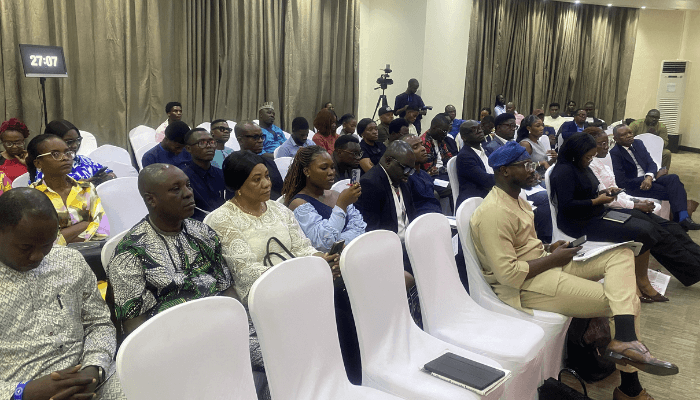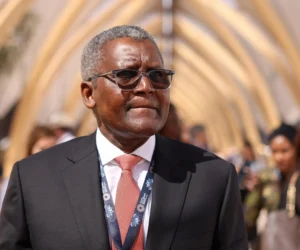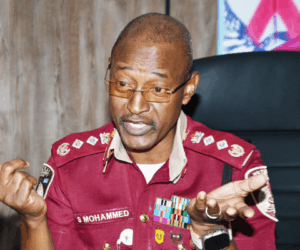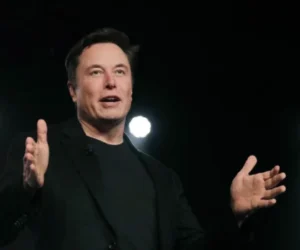Business and technology leaders are warning that Nigeria could miss out on the multitrillion-dollar gains artificial intelligence (AI) is expected to create globally by 2030 unless it tackles its deepening digital exclusion crisis.
Frank Aigbogun, publisher of BusinessDay Newspaper, at the BusinessDay AI Summit 2025 in Lagos, on Friday, said the opportunities presented by AI are undeniable but stressed that Nigeria’s lack of digital inclusion is creating a dangerous gap.
“We can no longer ignore the truth before us: artificial intelligence is not only the future, it is already here. Yet over 60 million Nigerians remain offline. That is more than the populations of Ghana and Rwanda combined. Millions cut off from the digital tools that drive education, healthcare, commerce, and opportunity,” Aigbogun said.
According to him, while AI could add an estimated $15.7 trillion to the global economy by 2030, Africa’s share of this pie remains dangerously small, noting that digital exclusion already costs African economies over $100 billion annually, with less than 40 percent of rural Nigeria enjoying reliable internet.
“This summit is our response. It is a declaration that digital exclusion is unacceptable. Access to technology must not be a privilege, it is a right. Every Nigerian has a right to progress and a right to participate fully in the global digital economy,” he added.
Aigbogun explained that AI is not simply about machines but about people. From predicting diseases before they strike, to supporting farmers with satellite-driven insights, to helping displaced children learn mathematics, AI is already proving its potential to transform society. However, he stressed that the technology also raises tough questions.
“Who builds it? Who benefits from it? And how do we ensure it reflects our values, our cultures, and our aspirations? These are not just technical questions; they are moral ones,” he said.
He argued that leadership on AI must extend beyond engineers and coders to include educators, ethicists, entrepreneurs, policymakers, publishers, and storytellers. The role of the media, he emphasized, is no longer just to report change but to convene stakeholders, challenge assumptions, and connect solutions.
The BusinessDay AI Summit 2025, convened with support from the BusinessDay Foundation and partners such as KPMG, brought together leaders from government, academia, civil society, and business. The goal is to spark collective solutions to Nigeria’s digital exclusion and AI readiness challenges.
“Let today be the spark, because the future is not something we enter, it is something we create. Together, let us build the future,” Aigbogun urged participants.
Ladi Asuni, partner, technology platforms at KPMG, while giving his keynote address, reinforced the urgency of combining innovation with governance and inclusion.
“AI is no longer abstract, it is embedded in our daily lives. But what happens when innovation scales without inclusion, or without guardrails of governance and trust? The risk is clear: we build powerful systems that leave behind the very people they are meant to serve,” Asuni warned.
He highlighted the impact of AI in financial services, including fraud prevention, credit assessment, and customer service, where AI-driven tools are expanding access. However, he cautioned that without policies to ensure fairness and transparency, AI could reproduce or even amplify existing social inequalities.
“As AI grows, so do concerns around fairness, transparency, and intellectual property. Large language models are trained on vast amounts of data, often without the explicit consent of publishers or authors. Who protects intellectual rights? Who ensures fairness when algorithms trained on Western data are applied to Nigerian realities?” Asuni asked.
For KPMG, the key is inclusive partnerships between government, academia, industry, and civil society. “Nigeria must invest in deep-tech accelerators, centers of excellence, ethical training, and localized datasets that reflect Nigerian realities. Universities must update curricula, governments must set frameworks, and businesses must build responsibly,” Asuni added.
Stakeholders agreed that Nigeria has the talent to harness AI effectively but needs stronger investment in infrastructure, localized data, and ethical frameworks.
They pointed to initiatives such as the 3 Million Technical Talent Programme as signs of progress but said far more must be done to ensure Nigerians can participate in AI innovation. “It will take sustained investment in infrastructure, skills, ethical frameworks, and local innovation. But this work cannot be accomplished in a day, or even in one summit,” they asserted.









